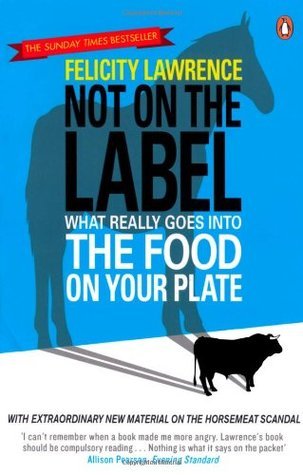What do you think?
Rate this book


400 pages, Paperback
First published January 1, 2002
'Supermarkets rarely have written contracts with farmers or packhouses promising to buy certain quantities, although farmers are obliged to commit to supplying certain amounts to them. The farmers are both required to take the loss on any surplus and to meet any shortfall at their own expense by importing if their own harvest does not meet demand. [...] The prices paid to farmers are nowhere near the cost of carrying a permanent workforce large enough to cope with fluctuations in demand.'
'Ninety-nine pence for a few leaves is a lot of money. But 99p for an unlimited supply of servants to wash and pick over it all, hidden not as in the old days below stairs, but in remote caravans or underneath plastic hothouses - that is cheap.'
The 'falldown' begins when a customer buys something in one of the [supermarket] stores. Scanning the barcode at the till creates a new order for the product. The information is transmitted to head office, electronically collated several times a day and instantly converted into a delivery schedule for the farmer or manufacturer for the following day. The supplier will have estimated how much food to produce, but will only get a final order a few hours ahead of the time he or she is expected to deliver to the depot...The orders can vary dramatically. A spell of good weather can, for example, double the demand for lettuce. Failing to meet a retailer's order in full can result in a financial penalty. Suppliers can find themselves losing thousands of pounds. But then unexpected rain might halve your order. If you end up with a surplus there's hardly anywhere for it to go, since the big retailers control much of the country's total market.'
'Each cow may produce twice as many litres of milk a year, each chicken may grow twice as fast, and each hectare of wheat may yield nearly three times as many tonnes as fifty years ago, but in that time, 60 per cent of ancient woodlands, 97 per cent of meadows with their rich flora and fauna, and fifty per cent of birds that depend on agricultural fields have gone, as have nearly 200,000 hedges. Not only has intensive farming polluted water courses, it has also created problems of soil erosion and flood. Industrialization of livestock has left animals prone to devastating epidemics of disease.'